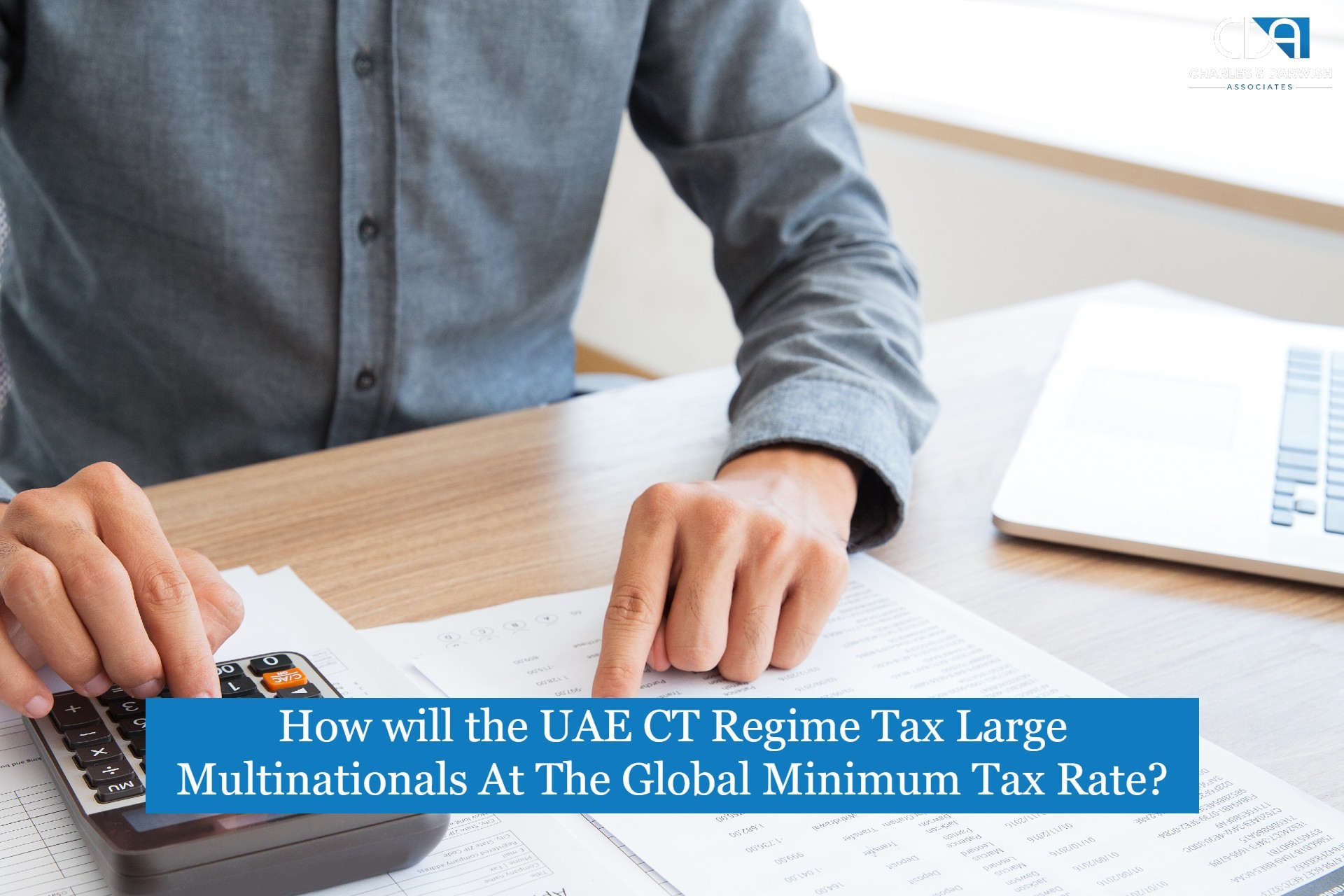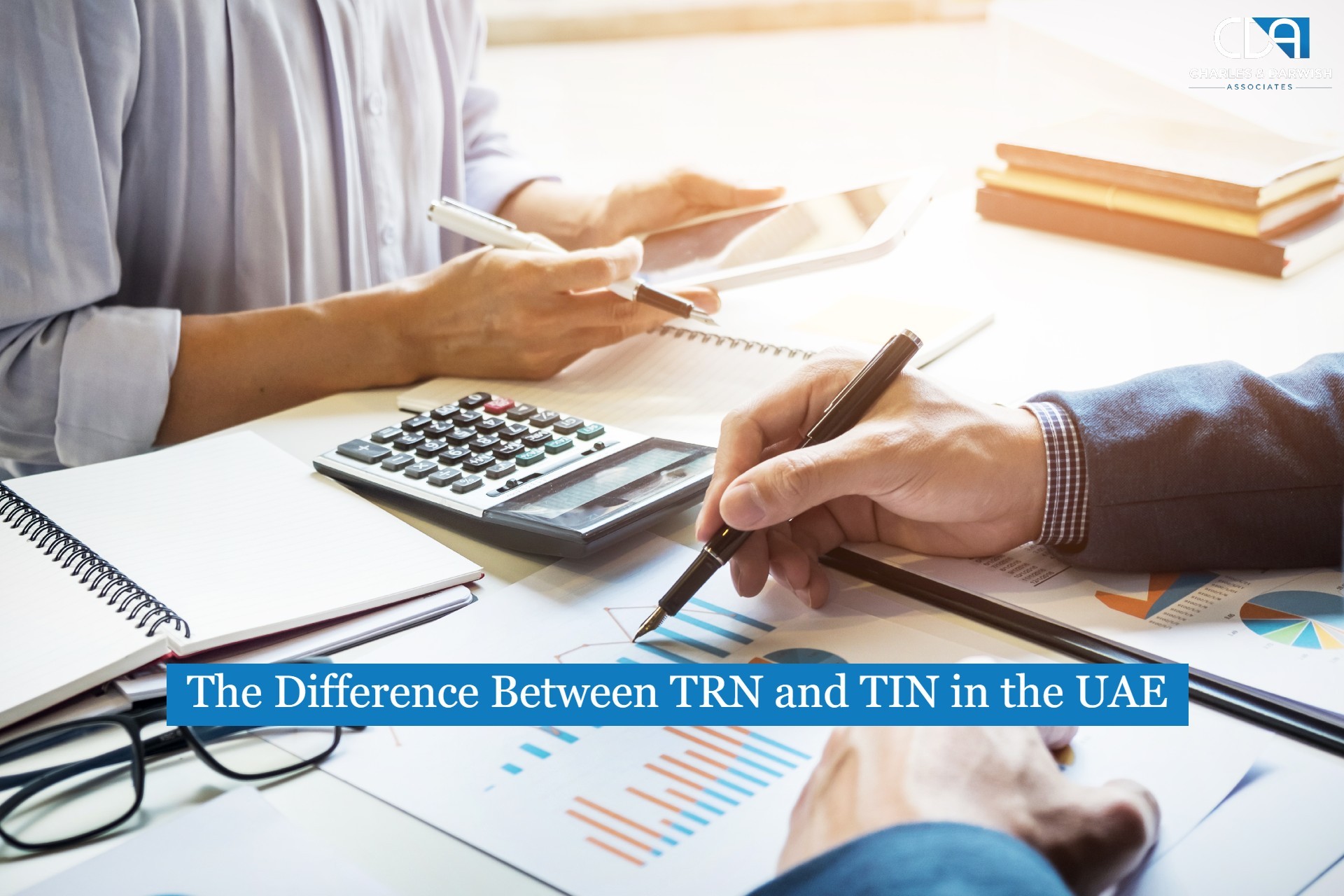How will the UAE CT Regime Tax Large Multinationals At The Global Minimum Tax Rate?
Previously the UAE has attracted global businesses with its low-tax benefits and open economy. But the global tax scene is changing. And as a business operating in the United Arab Emirates, you may have already noticed a lot of talk around international tax reforms. One of the biggest shifts recently has been the push for a global minimum tax rate. But how will it affect the multinationals based in the UAE?
Let’s break it down.
The UAE Corporate Tax
The UAE introduced its federal Corporate Tax law in 2023, applying a 9% tax rate—one of the lowest in the GCC on business profits exceeding AED 375,000. The move was intended to align with international standards and improve transparency.
Moreover, the (Organisation for Economic Co-operation and Development (OECD) developed the "Pillar Two" framework, also known as the Global Anti-Base Erosion (GloBE) Rules, under which over 140 countries (including the UAE) agreed that large multinational enterprises (MNEs) with consolidated revenues of at least €750 million in at least two of the last four years must pay a minimum 15% global minimum tax, regardless of where they operate. This was introduced to stop MNEs from shifting profits to low-tax jurisdictions, holding them to a fairer tax standard.
For a smooth implementation, in early 2024, the UAE tested the waters with consultations and by December 2024, Cabinet decision No. 142/2024 (Cabinet-Decision-No-142-of-2024-on-Top-up-Tax-on-MNEs.pdf) confirmed a DMTT which will be effective from 1 January 2025.
What Does DMTT (Domestic Minimum Top‑up Tax) Mean For Large Multinationals?
DMTT ensures that if large multinationals within global groups earning €750 m+ pay less than 15% tax overall, the UAE will collect the top‑up by calculating the gap between actual UAE taxes and 15% to reach the global minimum. The DMTT rules mirror the OECD model for how to calculate effective tax rate and top‑up amounts. Here, compliance includes registering entities, filing returns within 15 months after year‑end (or 18 months during the transitional phase), and joint liabilities across group members.
That means affected businesses must meet transparency standards like transfer pricing and economic substance. They need accurate reporting, keen insight into effective tax rates across jurisdictions, and proper systems to calculate any top-up tax.
But which are the affected businesses?
Included - UAE companies with yearly revenue of €750 million.
Excluded - Sovereign wealth funds, pure investment entities, and companies with annual revenue under €750 million are not included.
Why Is This Important?
It is important for the MNEs to understand and comply with the new global minimum tax regime due to the following factors:
- Global Responsibility: By showcasing its dedication to international tax transparency, the UAE is solidifying its standing as a responsible and law-abiding business centre.
- Maintaining Competitiveness: Although the 15% may appear like a significant increase from the typical 9%, UAE's advantageous location, top-notch infrastructure, and ease of doing business continue to make it a strong lure for companies worldwide. So, the introduction of the DMTT aligns the country with global norms without sacrificing its competitive edge.
You can also read: What is the impact of the Domestic Minimum Top-Up Tax (DMTT) on MNEs in the UAE?
What Does This Mean for MNEs?
This move needs your urgent attention if you are a large multinational company that operates in the UAE or is thinking about establishing a presence here. You will need to:
- Review Your Structure: Understand how your global consolidated revenue might impact your UAE operations under the DMTT.
- Assess Your Current Tax Position: Analyse your UAE corporate tax obligations and identify if there are any top-up tax liabilities.
- Be Compliant: Familiarize yourself with all the necessary DMTT's rules and regulations. This entails being aware of reporting obligations, exclusions, and accounting standards.
To Conclude
The UAE's economic environment is still changing. The implementation of the global minimum tax rate for large multinationals is a testament to this change. It's a clear signal that the UAE is not just a favourable place to do business but a responsible and progressive player in the international economic arena.
If your business crosses the €750M revenue threshold, now's the time to gear up—get your tax data in shape, map out gaps, and prepare for smoother, globally aligned reporting.
CDA’s Role As Your Tax Assistance
CDA’s well-versed team has been providing tax services to its clients for more than a decade and hence has made its position in the UAE as one of the leading accounting and auditing firms. The ever-changing economic environment and new introduction and amendment of tax regulations would be hectic for competitive businesses, for such businesses the experts of CDA are always at stand by to provide the professional tax services and to ensure these businesses stay complied to these regulations.

Mitesh Maithia
Tax Manager
Mitesh is a Tax Professional with expertise in direct, indirect, and international taxation, including transfer pricing, since 2018. Passionate about making complex tax matters simple, he shares insights to help businesses stay compliant and forward-looking.













